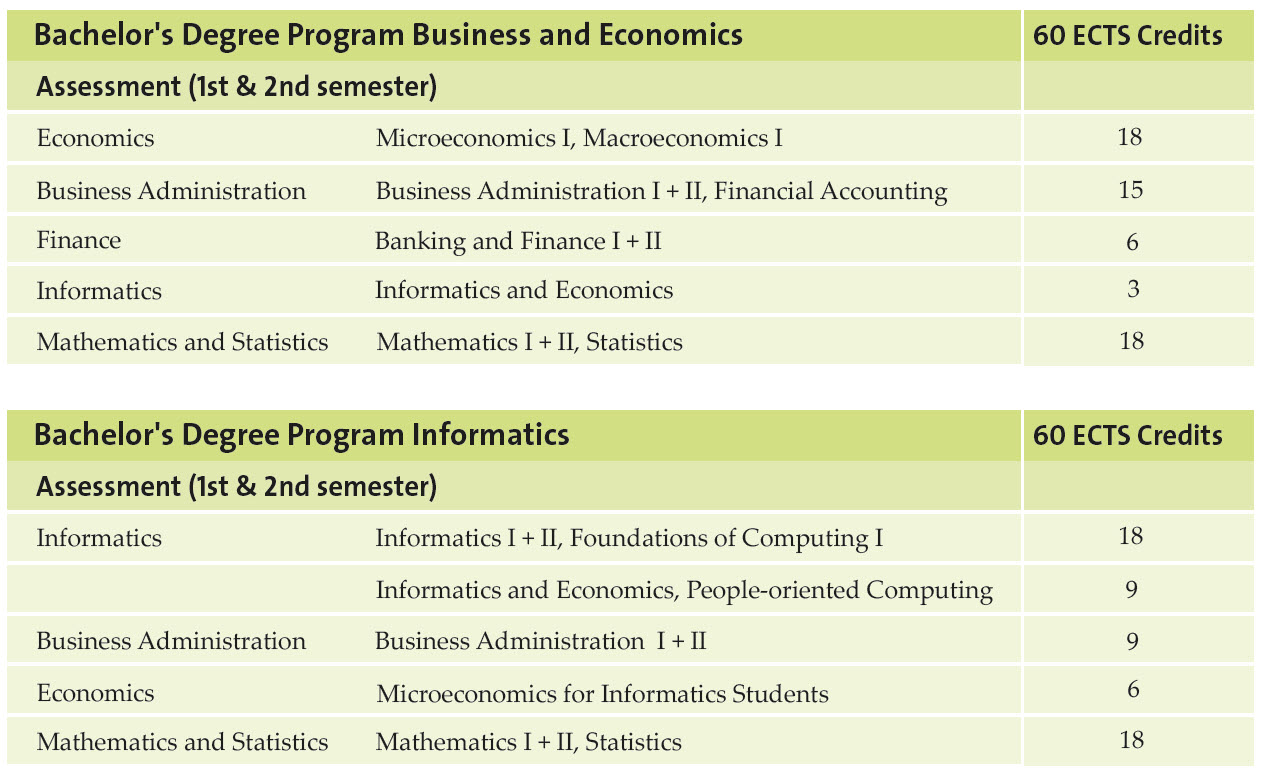Assessment Level
The two-semester assessment level provides you with basic knowledge for your further Bachelor's studies in business and economics, and informatics respectively. In addition, basic knowledge in mathematics and statistics is covered.
The assessment level is intended to help students orient and determine whether the program corresponds to their expectations and aptitudes.
Table of contents
Structure and content
The assessment level begins in the fall semester and usually lasts two semesters. A total of 60 ECTS credits must be earned; a maximum of one repeat option per module is permitted. Below you can find an overview of modules that you have to cover, depending on whether you study business and economics or informatics.
Deadlines
All coursework of the assessment level has to be completed within four consecutive semesters. This two-year period begins with the first admission to the Bachelor's degree program and is not interrupted by transferring to another faculty or withdrawing from the University of Zurich.
Booking modules
Modules are courses offered by lecturers in a certain semester. ECTS credits are earned by successfully completing modules. Registering for and dropping modules and thereby examinations is done directly via the module booking tool.
Students who have earned less than 45 ECTS credits of the assessment level are not yet allowed to book modules of the advanced level or their minor study program.
Examinations
An explicit assessment must be obtained for each module. Registering for examinations is done via the UZH module booking tool (see above). Here you will find additional information about examinations and specifically about assessment-level examinations.
Freshers' event
The freshers' event is organized by the Faculty together with the student association of the Faculty. It takes place just before the beginning of courses and is intended to help new students orient at the University and in their degree programs. In addition, freshers get to know their tutor who will accompany them throughout the first semester.
Course materials
Course materials for individual courses are managed by the respective module coordinators and lecturers and are published on their websites or on OLAT.
Suspension of assessment-level studies
In exceptional cases, assessment-level students may pursue extra-curricular activities (internships, language courses abroad, employment, humanitarian aid, etc.) during a short period of time.


